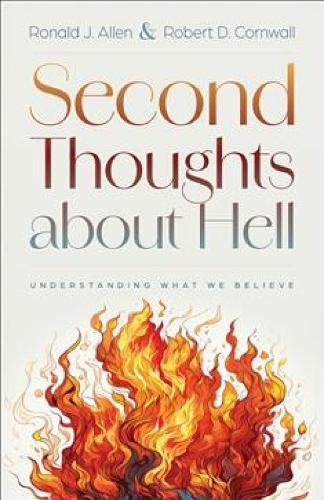Readings Newsletter
Become a Readings Member to make your shopping experience even easier.
Sign in or sign up for free!
You’re not far away from qualifying for FREE standard shipping within Australia
You’ve qualified for FREE standard shipping within Australia
The cart is loading…






As Christians, what should we believe about hell?
Instead of offering a prescriptive, one-size-fits-all answer, Ronald Allen and Robert Cornwall guide the reader through the historical interpretation of hell. They begin with the voices of the Hebrew Bible, extrabiblical, and New Testament texts and the voices of the early, medieval, Reformation, and modern church, pointing out the three main Christian views today-literalism (hell exists, and those there will suffer for eternity), annihilationism (the punishment of hell is limited and leads to the extinction of the sufferer), and universalism (everyone is saved, so hell does not exist). They include multiple contemporary theological positions on hell, such as those of liberation theologians and process theologians. The book also takes an ecumenical and interfaith approach to the topic by describing Catholic, Orthodox, Jewish, and Muslim perspectives on hell. Through describing and explaining these different points of view, Allen and Cornwall allow the reader to decide what view(s) of hell make the most theological and ethical sense to them, and they conclude by offering their personal thoughts on hell.
The book includes a study guide and glossary, making it an excellent resource for group study. An online resource designed for pastors who want to design topical and lectionary-based sermon series on hell is available for download.
$9.00 standard shipping within Australia
FREE standard shipping within Australia for orders over $100.00
Express & International shipping calculated at checkout
Stock availability can be subject to change without notice. We recommend calling the shop or contacting our online team to check availability of low stock items. Please see our Shopping Online page for more details.
As Christians, what should we believe about hell?
Instead of offering a prescriptive, one-size-fits-all answer, Ronald Allen and Robert Cornwall guide the reader through the historical interpretation of hell. They begin with the voices of the Hebrew Bible, extrabiblical, and New Testament texts and the voices of the early, medieval, Reformation, and modern church, pointing out the three main Christian views today-literalism (hell exists, and those there will suffer for eternity), annihilationism (the punishment of hell is limited and leads to the extinction of the sufferer), and universalism (everyone is saved, so hell does not exist). They include multiple contemporary theological positions on hell, such as those of liberation theologians and process theologians. The book also takes an ecumenical and interfaith approach to the topic by describing Catholic, Orthodox, Jewish, and Muslim perspectives on hell. Through describing and explaining these different points of view, Allen and Cornwall allow the reader to decide what view(s) of hell make the most theological and ethical sense to them, and they conclude by offering their personal thoughts on hell.
The book includes a study guide and glossary, making it an excellent resource for group study. An online resource designed for pastors who want to design topical and lectionary-based sermon series on hell is available for download.